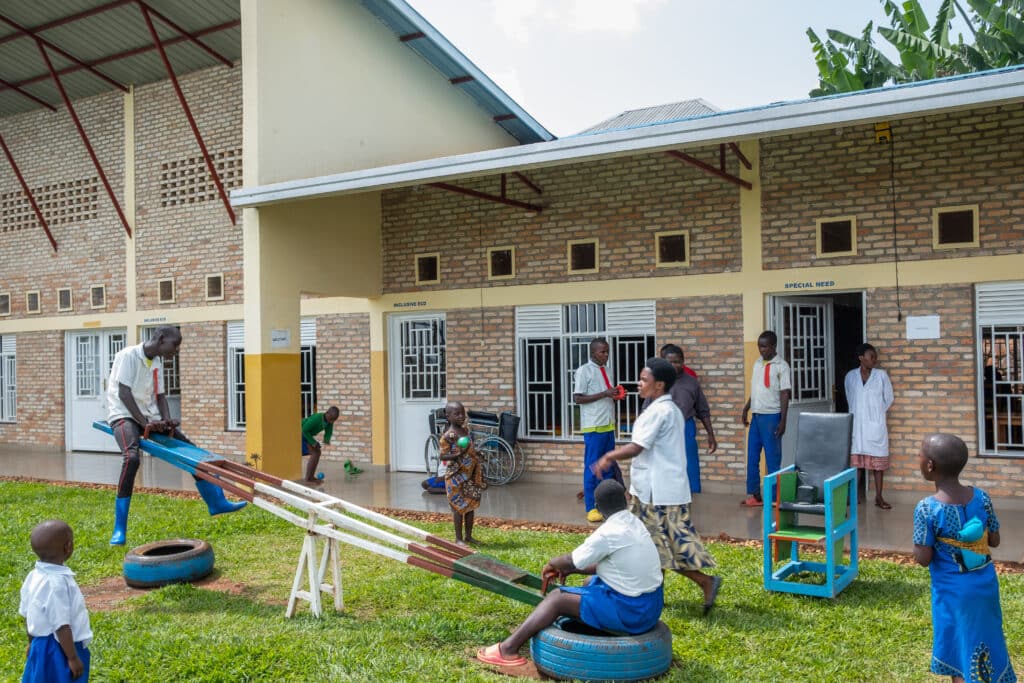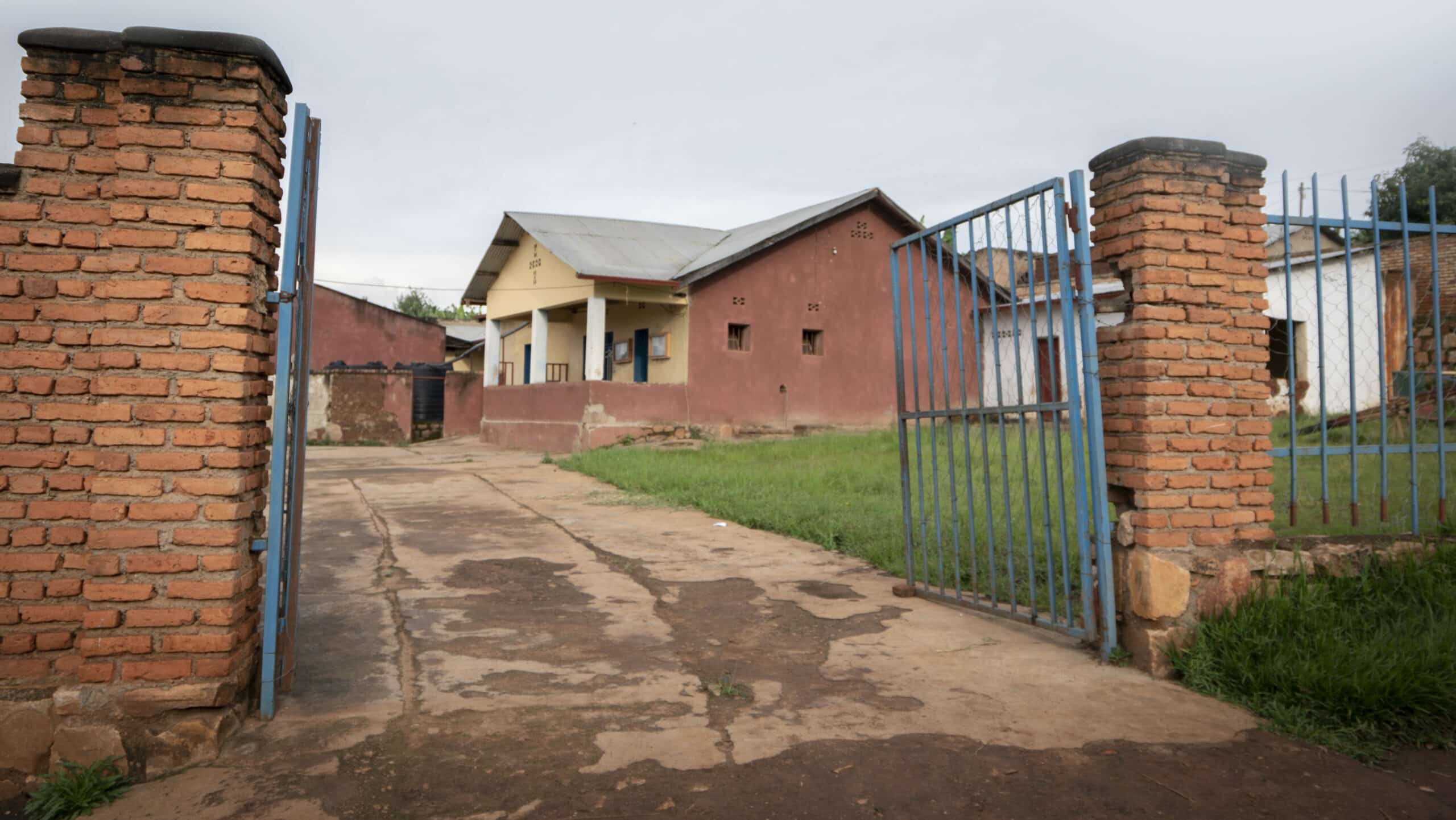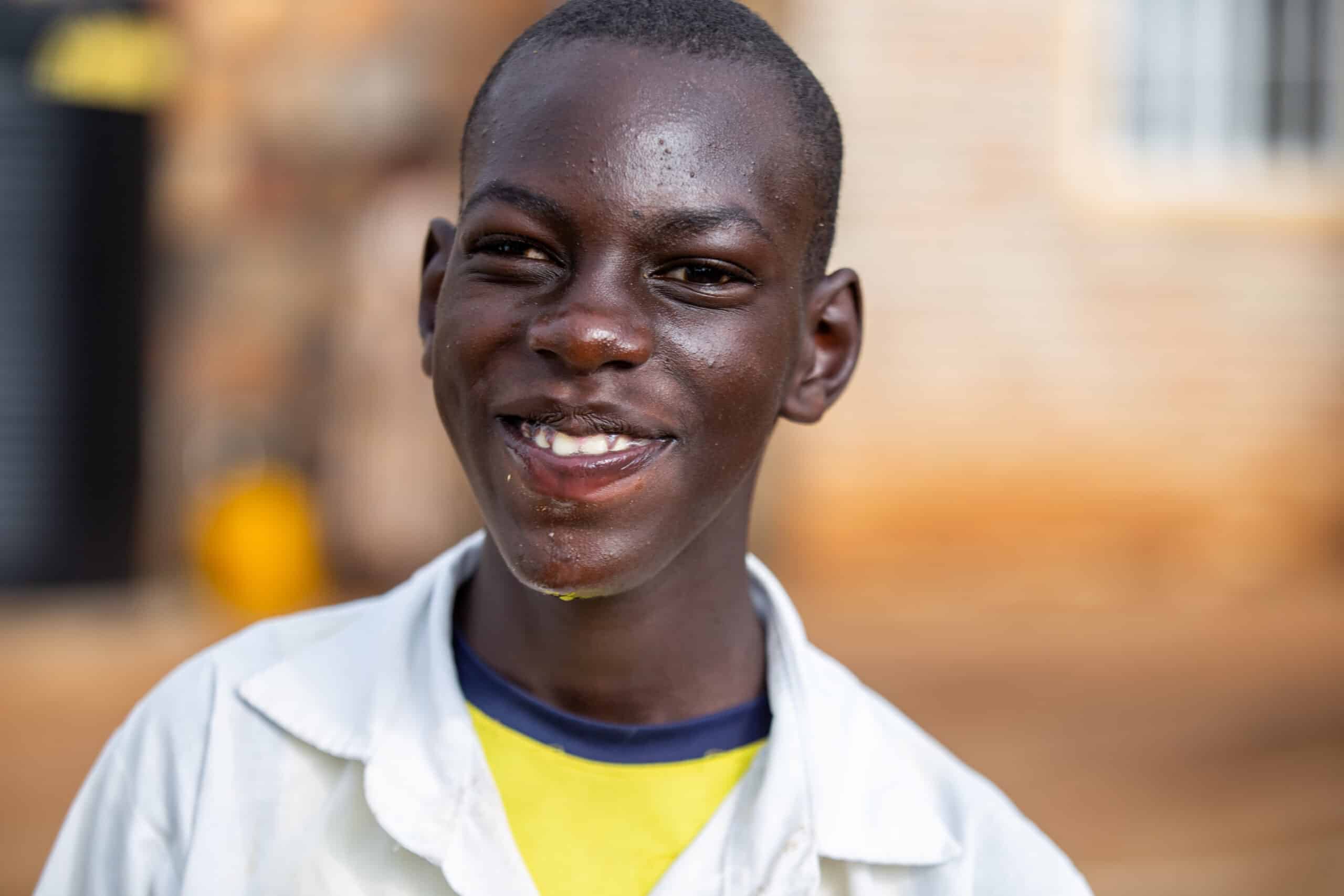After twenty years of collaboration with Hope and Homes for Children, Rwanda is set to become the first nation in Africa to end the institutionalisation of children. From the Kigali Declaration to the creation of community hubs, our Rwanda Country Director, Innocent Habimfura, explains how he and his team are paving the way for an orphanage-free future.
Last year, history was made in our country. With the unanimous passing of the Kigali Declaration in June 2022, the Commonwealth nations pledged to end the institutionalisation of children once and for all. That’s 54 nations saying no to orphanages, the separation of families and the mistreatment of children – a revolution across the Commonwealth that starts in Rwanda.
Now, the next key milestone is for us to make Rwanda orphanage-free by 2026. And with your continued support and donations, we can make this happen.
Our journey so far
Over the past twenty years, Hope and Homes for Children has been working in Rwanda to pursue this goal. From supporting struggling families to creating community spaces, from reuniting families to deinstitutionalising children with disabilities, our approach has been dynamic, inclusive and pioneering.
Supporting individual families
In 2002, we began by supporting selected families most in need throughout Rwanda to prevent children from ending up in orphanages. Our society still bears the tragic scars of the genocide against the Tutsi in 1994. In its wake, there were many children growing up under the care of frail and elderly grandparents, struggling single parents, or often, their elder brother or sister. We did all we could to help families create a healthy home environment – from building houses for children and families that were homeless, to helping them access education and healthcare and improve their income and family relationships. Our social workers listened to each family’s needs and aspirations and celebrated their strengths. Together, they paved the way for their journey from vulnerability to self-reliance – the first step on the road to an orphanage-free Rwanda.
Introducing community hubs
Through our work with individual families, it quickly became clear that many families did not have access to vital services they needed. So in 2005, we expanded our work to reach even more families by introducing our ‘community hubs’ – centres in the heart of the community to provide whatever services families need most, from early childhood development to parenting skills workshops. This community-based approach builds social cohesion, prevents family breakdown and supports children, people with disabilities and the elderly.

National commitment to closing orphanages
Our work took a big turn in 2010 when we teamed up with the Ministry of Gender and Family Promotion for a project to end the institutionalisation of children in Rwanda. With this project, we could put an end to a practice dating back to 1954. After kickstarting the first professional closure of a children’s institution and launching a survey of children’s institutions across the country, in 2012 the Rwandan administration approved a national strategy for childcare reform.
As a result of this policy, over 91% of children have been reintegrated with their families. Now, Rwanda has only 10 orphanages left, down from 41. Numbers are important, but the smiles, happiness, and sense of belonging that children experience with life in a family speak volumes.
Closing orphanages for children with disabilities
Since then, the national agenda for childcare reform has become even more inclusive. 2019 saw the first closure of an institution for children with disabilities in Rwanda. These former institutions have been turned into vibrant community hubs, offering support and learning opportunities to hundreds of disabled children, like Peter* (pictured above), who were previously left at home with no care or stimulation. This has been championed by parents of children with disabilities who have seen the many gaps in childcare facilities.

The road ahead
The road ahead remains long, however, and there’s still more work to be done. Without the Rwandan government’s strong will, its dedicated social workforce, and money available for the entire process, the transition of children from institutions would not be possible. To ensure the legacy of the 2022 Kigali Declaration, there’s now an urgent call for more support for Rwanda to complete its mission and become a vibrant learning hub.
Rwanda’s roadmap to an orphanage‑free future is already being shared with other countries, and we can expect that the demand for support will continue to increase. Our team has already hosted a number of Learning Exchanges with Kenya, Uganda, Zambia, Malawi, South Africa, and Ghana, with some new Hope and Homes for Children’s initiatives launching in Kenya this year.
Our work in Rwanda goes beyond borders, setting a standard for countries throughout Africa and around the world. Now, twenty years since Hope and Homes for Children began working here, Rwanda is a pathfinder nation for ending child institutionalisation.
We need your support to pursue this momentum. So far, our work in Rwanda has helped to support 150,000 children and family members. That’s 150,000 smiles, 150,000 dreams, 150,000 people who deserve a united home. If we continue down the trail that’s being blazed by Rwanda, we can do the same for the 5.4 million children still suffering in institutions, and their families.
And that’s exactly what we plan to do.
Cover image: 16-year-old Peter* is now thriving thanks to the learning opportunities available at his local community hub. Credit: Jean Bizimana / Hope and Homes for Children
Innocent Habimfura is Country Director, Hope and Homes for Children, Rwanda
